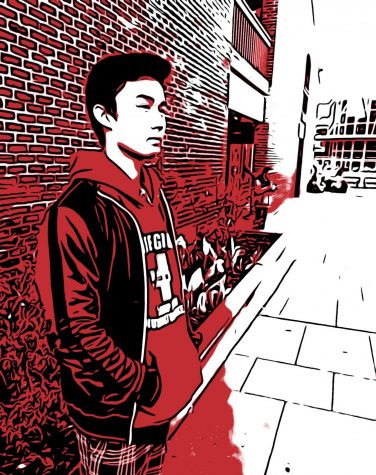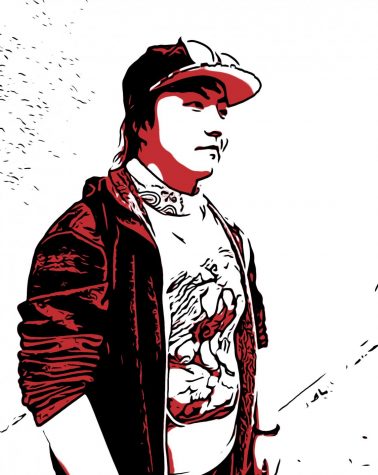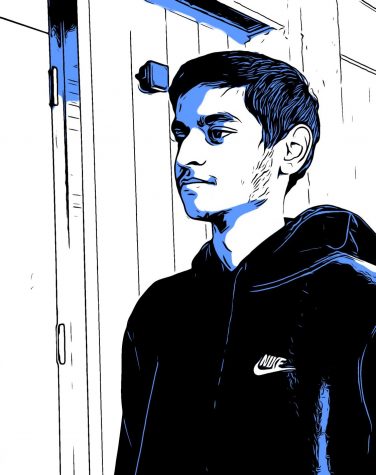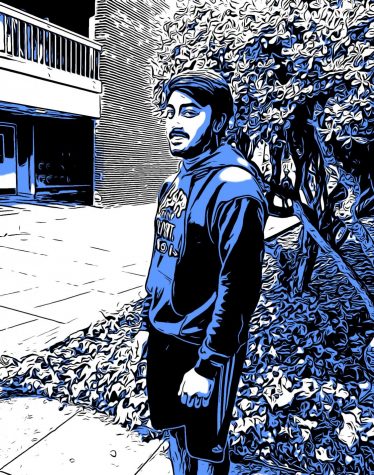Marvel vs. DC Comics
MVHS community debates between Marvel vs. DC
April 10, 2019
Major Malcolm Wheeler-Nicholson was in need of cash. It was 1937, and he was writing for pulp magazines, another name for inexpensive fiction magazines. Partnering with magazine distributors Harry Donenfeld and Jack Liebowitz to get money, he founded Detective Comics, which, after a series of mergers and changes in ownership, eventually became the company it is known as today: DC Comics.
After witnessing the success of the hugely popular comic book industry and the appearance of superheroes in them, pulp magazine publisher Martin Goodman created Timely Comics in 1939, which eventually became Marvel Comics. Thus, the rivalry between DC and Marvel began.
Characters of all varieties came to life across the vivid pages that appear on sophomore Patrick Nguyen’s phone. Nguyen began reading comics when he was 13. While he has less time now to read them, his love for comics has never diminished.
Nguyen first got into Marvel and DC comics because he wanted to learn more about the rivalry between them. Currently, Nguyen prefers Marvel and has seen every Marvel movie.
“It’s easier to go out and watch a movie with your friends or just go on a marathon watching all of the movies than it is to sit down and read a bunch of comic books,” Nguyen said. “So I’d have to say Marvel because it’s just easier to share that sort of knowledge and experience.”
Sophomore Selena Ding agrees that the movies are typically what introduces viewers into the comic book franchises and are easier to get involved in due to how widespread they are. Ding enjoys watching the movie adaptations; however, she prefers reading the comics because of the unique art style.
The first superhero movie Ding watched was “Iron Man,” and ever since, she has become more involved with the Marvel universe. She admits to being slightly biased towards Marvel, accounting it to the fact that she was introduced to Marvel first. Out of a survey of 334 students, 70% were introduced to Marvel first and 30% were DC Comics.
“I would assume that Marvel movies are more popular than DC since they’re more kid friendly,” Ding said. “They’re not as dark, so then they would allow more kids to watch it and then more kids would get introduced and then comic books would also get introduced also.”
Junior Ashvin Irrinki, on the other hand, was first exposed to the superhero universe through video games and TV shows, establishing his preference for DC. In eighth and ninth grade, he watched shows from The CW Television Network and Netflix, with many of them being adaptations of comic books, such as “The Flash.”
Irrinki believes that Marvel and DC have primarily the same type of stories and archetypal characters, and similar movies, although he admits that Marvel movies are typically more popular. He attributes that to their development of a cinematic universe, which quickly gained popularity, leading to other companies mimicking this pattern by creating shared universes.
“In the past, the Batman trilogy, for instance, was just set in its own universe, but then after that, they didn’t develop anything more,” Irrinki said. “[But] they’re trying to make the DCEU [DC Extended Universe] now. And I think that’s the only thing that differentiates Marvel and DC, just the success of their movies.”
Irrinki also believes that it is the tone of the movies that dictates success. One of the trends he has noticed is a growing popularity of incorporating comedic or more light-hearted elements into action movies, something that Marvel is leading and popularizing in the industry. This tone is also becoming more common as Irrinki notes that the DC movie “Aquaman” contains more humorous aspects in comparison to past movies like “Batman vs. Superman,” which further minimizes the differences between the two companies.
For long-time comic fan and junior Hrushikesha Athreya, while DC comics may seem darker and not have as many iconic characters, having fewer characters allow for more depth to them. Athreya believes that a part of why Marvel characters have become so iconic is due to funding towards their movie industry.
“The way they’re portrayed in Marvel, there’s not really much backstory to the characters,” Athreya said. “They kind of just show up in the middle but for DC, they really work on character development and intimacy with the readers, so whenever something happens to the character, the readers feel it too.”
English teacher Mark Carpenter feels that there isn’t a particular distinguishing trait between the two brands. He believes that they use similar techniques repeatedly, offering a lot of hype without payoffs and creating overly complicated mythologies. However, he is optimistic that the films are bringing people into reading comics more, and delving further beneath the surface of superhero stories.
Nguyen, however, believes that there is a difference between the two companies, as the tone of DC Comics is darker. Although dabbling in darker themes narrows their appeal, Nguyen believes that in doing so, the comics can express more intricate details of a character and their motives.
“Marvel tends to censor things more, making them slightly more appealing to younger people,” Nguyen said. “If you read through DC comics, compared to Marvel comics, DC comics are a lot darker. They’re just more mature.”
According to Ding, DC comics go more in-depth into morality: how superheroes waver between making the right decision and turning to the wrong side. Meanwhile, Marvel has more clear-cut lines between superheroes being on the good side and villains on the bad. However in making it more clear cut they haven’t built up classic rivalries comparable to DC Comics.
“I would say DC kind of invented a sort of more classic rivalry between Batman and Superman,” Ding said. “While Marvel it’s generally kind of just like more iconic superheroes like Captain America [and] Spider Man, because everyone knows these kinds of superheroes.”
The difference in approach to characters and plot development is something Athreya believes is linked to the historical background of both companies. DC Comics started in a darker time, during the Great Depression. On the other hand Marvel started later when Americans had more jobs and opportunities due to WWII, which in turn influenced the content they projected to readers.
“With Marvel, they don’t really portray morals because that was like a big scene in the 1920s-1930s when they really wanted to push morals and ethics into war,” Athreya said. “Batman was really representing the dark side of war, but the moral aspects like one of Batman’s quotes was, ‘If you kill a murderer, the number of murders in the world stays the same.’ When they really try to push moral decency as well as hard justice, I think [that’s] perfect.”


















